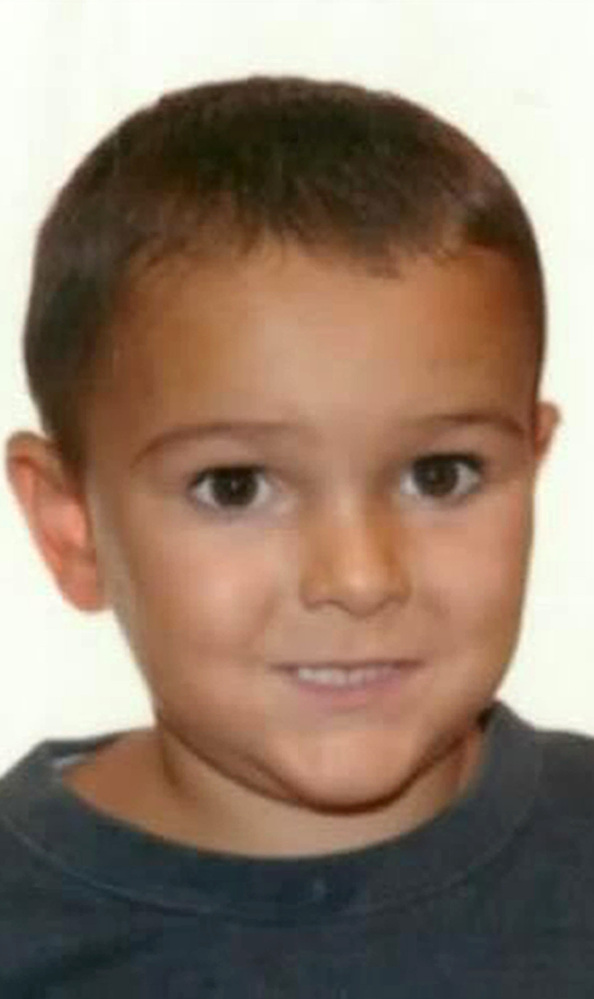LONDON — The parents say they want to give their 5 year-old-boy with a brain tumor the best chance to live with a revolutionary new treatment they learned about on the Internet. Their British hospital says the boy has a 70 percent to 80 percent chance of survival with the treatment it offers, and it’s the parents who are putting the child at risk.
Britain has become riveted by the case of little Ashya King, whose parents plucked him from a hospital in southern England and fled to Spain amid a dispute over treatment – with British justice close on the family’s heels.
Brett and Naghemeh King signaled Monday they would fight extradition, defying doctors and the legal system as a British court considers a ruling on forcing the family to come home.
“I’m not coming back to England if I cannot give him the treatment I want, which is proper treatment,” Brett King said as he cradled the child in a video posted before his arrest. “I just want positive results for my son.”
The Kings are seeking a new type of proton beam radiation therapy that typically costs at least $33,000.
The Southampton General Hospital says that more conventional methods have a very high chance of succeeding. It said that while proton beam therapy is effective for some tumors, in other cases “there isn’t evidence that this is a beneficial treatment.”
The family fled to Spain in hopes of selling a property to obtain enough cash for treatment in the Czech Republic or the United States. Police pursued them. Prosecutors issued an arrest warrant for an offence of cruelty to a person under the age of 16 years, hours after the Southampton hospital realized their patient was gone.
British authorities traveled to Spain to question the couple. Assistant Chief Constable Chris Shead, of Hampshire Constabulary, has said he would rather be criticized for being “proactive” than trying to explain later “why a child has lost his life.”
The hospital’s medical director, Dr. Michael Marsh, issued a statement late Monday saying that the treatment was discussed with the family.
He put the chances Ashya surviving under the hospital’s treatment at 70 percent to 80 percent after five years. He expressed sadness that communication with the family had broken down and that “for whatever reason they have lost confidence in us.”
Ethicists say the case is unprecedented, and has raised questions of how much power authorities should have in interfering with the will of parents in questions of life and death. While there have been many previous legal tussles over terminal illness issues, there have been few regarding questions over which treatment should be followed.
Even Prime Minister David Cameron’s spokesman weighed in on Monday, saying people all over the country have been moved by the family’s plight.
These kinds of cases normally result from a communication breakdown, said Penney Lewis, professor of law and a medical ethics expert at King’s College London. She said parents are typically only prosecuted when they fail to engage with the medical care entirely and the child dies as a result.
Send questions/comments to the editors.



Comments are no longer available on this story